…an expanding list.
In no particular order, here are some books that I think are important, have hugely influenced my thinking, or I just think are worthwhile reading. I will try and get around to fuller reviews at some point. Links are to Goodreads pages. This will be an ongoing and growing list as time permits, so maybe return here once in a while. I should note for clarity and for the intellectual debt that I owe them, that pretty much everything written by my PhD supervisors, Professor Kim Sterelny, and Professor Peter Godfrey-Smith, will eventually be added to this list.
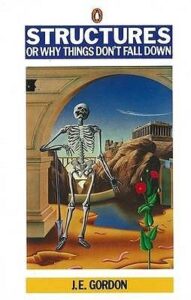 Structures: Or why things don’t fall down. J.E.Gordon.
Structures: Or why things don’t fall down. J.E.Gordon.
How many times have I read this book? I’ve lost count. I haven’t so much read this book as absorbed it into my thought processes. Its basically macro-physics engineering, and its lessons are engrained in the way I think about the world and its structures, and geology; human culture, design, building, and craft; evolutionary design, evolutionary pathways, adaptive space, and constraints on organisms, and, to some extent, even philosophy in the distinction between reductionist physics and engineering. Coupled with his other book, The New Science of Strong Materials: Or Why you don’t fall through the floor, Gordon has shaped how I view the structure of the world.
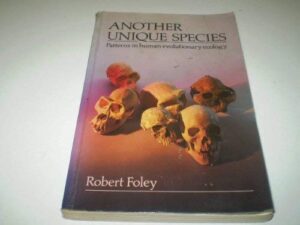 Another Unique Species: Patterns in Human Evolutionary Ecology. Robert A. Foley.
Another Unique Species: Patterns in Human Evolutionary Ecology. Robert A. Foley.
This book pretty much shaped my entire research career. The title alone sums up so much about my views on humans, evolution and our place in the world. It shaped my understanding of not just human evolution, but Darwinism, evolutionary constraints, historical contingency, ecology, and biological and social structures. It’s also sneakily philosophical. Foley argues that we can understand the evolution of a species –any species– only if we understand the adaptations of its ancestors in response to particular constraints and opportunities. Sigh. So much to say about this book. I should get round to saying it in full at some point.
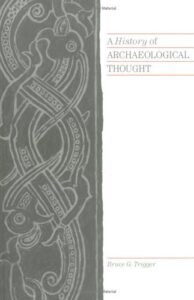 A History of Archaeological Thought. Bruce Trigger.
A History of Archaeological Thought. Bruce Trigger.
Less influential than the previous books, but still pretty important. This book shaped my master’s thesis, and taught me about the limits of biological explanations of human behaviour, as well and the politics, and social science issues related to archaeology. I learnt not just a history of archaeology and its theorising, but its interaction with the changing face of academia, science, and politics. I must get around to reading it again. I also regret that Professor Trigger passed before I could interact with him in person.
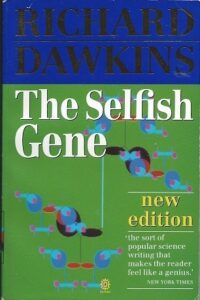 The Selfish Gene. Richard Dawkins.
The Selfish Gene. Richard Dawkins.
Like a lot of people, I might not agree with the social media version of Richard Dawkins, but this still remains an influential book, with deep ideas. Later works, sure, ignore. But this book shaped so much thinking and debate both publicly and in the halls of academia, that even if you disagree with it, or find the frothy aetheist Dawkins annoying, it’s still worth the read.
I read this before I read Foley, and it probably meant I was in a good position to understand the implications of Foley’s work. I also read Trigger afterwards, and Trigger, as much as anything showed me the limits of biological thought.
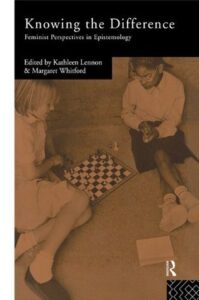 Knowing the Difference: Feminist Perspectives in Epistemology. Edited by Kathleen Lennon and Margaret Whitford
Knowing the Difference: Feminist Perspectives in Epistemology. Edited by Kathleen Lennon and Margaret Whitford
Along with Bruce Trigger, this book, and the related course work prescribed by Ismay Barwell, probably did the best job at insulating me from taking biological explanations, or indeed, any reductionist explanation, of behaviour, too seriously. It also prepared me theoretically for the work of feminist anthropologists like Sarah B. Hrdy, Adrienne Zihlman, and others, which made a huge contribution to my understanding of human evolution, and to interpreting and understanding how biases might creep in. The grandmother hypothesis and its role in my thinking also got a leg up from having this in my reading background as well.
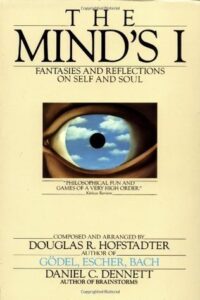 The Mind’s I: Fantasies and Reflections on Self and Soul. Edited by Douglas R. Hofstadter and Daniel C. Dennett
The Mind’s I: Fantasies and Reflections on Self and Soul. Edited by Douglas R. Hofstadter and Daniel C. Dennett
I read this in art school, NOT while doing philosophy. It turned me back. I discovered Kim Sterelny, Dawkins and various other bits and pieces in here that were to stay with me and enthuse me for the next couple of decades. So it’s all Dennett and Hofstadter’s fault.
0 Comments